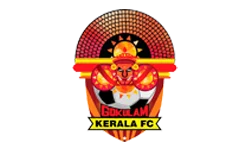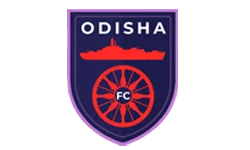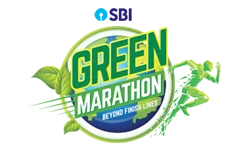We’ve all been there. A good night out becomes a slow, gloomy morning of regret. Head pounding, nausea spinning around, the idea of doing anything seems impossible. In addition, you may be struggling with a weird feeling of discomfort—anxiety, guilt, or nervousness—which may be equally annoying as the physical symptoms. When you ask yourself how to deal with hangover symptoms or why you are all of a sudden feeling anxious, you are not the only one.
Let’s take a look at how to handle a hangover after a night out, from both a physical aspect and the less noticed emotional one, such as anxiety after alcohol.
A hangover is the condition of what your body does after consuming an excessive volume of alcohol. It normally begins a few hours after your blood alcohol level begins to diminish. Common symptoms include. pmc
• Headache
• Fatigue
• Nausea
• Dizziness
• High sensitivity to light and sound
• Thirst and dry mouth
• Muscle aches
• Anxiety or irritability
The intensity of these symptoms may depend upon how much you drank, how hydrated you were, what you ate, and your alcohol tolerance.
If you are interested in how to reduce the hangover from alcohol, the answer won’t be a magic wand but a set of supporting strategies to help your body recover. Wiley
Alcohol results in the body releasing excess fluid since it is a diuretic. One of the main causes of hangovers is dehydration. Drinking water, coconut water, or drinks with electrolytes will help restore balance.
When your blood sugar level is lowered, you become fatigued and nauseous. A nutrient-packed breakfast rich in complex carbs, healthy fats, and proteins can keep your system stable. Try muesli with fruit, avocado, whole-grain bread, or eggs.
Your body heals during sleep, but alcohol disrupts sleep cycles, so even a full night's rest may not feel refreshing. Take naps or have a lazy day to give your body recovery time.
Some supplements can help reduce the effects of a hangover. B vitamins, magnesium, and antioxidants like vitamin C help replenish nutrients lost during drinking. Herbal options like milk thistle or ginger can support liver function and ease nausea.
Though tempting, consuming more alcohol to suppress hangover symptoms is not the answer. It delays detox and prolongs recovery. It’s not how to overcome an alcohol hangover—it’s how to worsen it.
While physical symptoms are easy to identify, many people also experience anxiety after drinking, sometimes called "hangxiety." This may include racing thoughts, regret, embarrassment, or panic. mdpi
Alcohol affects neurotransmitters like serotonin and dopamine, temporarily lifting your mood and lowering inhibitions. But once it leaves your system, your brain releases stress hormones like cortisol, increasing anxiety.
This is why people often ask:
• Does alcohol reduce anxiety? (temporarily, yes)
• Does alcohol cause anxiety? (ultimately, yes—especially during a hangover)
So, while alcohol may seem to calm you in the moment, it can contribute to anxiety after alcohol consumption has worn off.
If you’re struggling with anxiety after alcohol, here are a few helpful techniques:
Controlled breathing methods like box breathing or 4-7-8 breathing can reduce cortisol and soothe your nervous system.
Caffeine may seem helpful, but it can worsen anxiety after drinking. Choose green tea or herbal infusions instead.
Sometimes anxiety comes from uncertainty about what happened. A quick chat with a trusted friend can help you piece together the night and ease your mind.
A gentle walk or some stretching can boost endorphins and help metabolize remaining alcohol, improving both mood and energy.
Don’t be too hard on yourself. Everyone overindulges now and then. What matters is how you care for yourself afterwards.
The best method for managing hangovers is to avoid them altogether. Here’s how to do that:
• Eat before and while drinking—This helps slow alcohol absorption and stabilize blood sugar.
• Pace Yourself—Sip slowly and alternate with water.
• Stick to One Type of Alcohol—Mixing increases your risk of a bad hangover.
• Know Your Limits—Don’t try to keep up with others. Listen to your body.
If you regularly experience intense anxiety after drinking or rely on alcohol to manage stress, it’s worth evaluating your relationship with alcohol. Ongoing emotional distress may be a sign of deeper issues. A healthcare professional can guide you toward clarity and support.
Asking how to overcome an alcohol hangover is common—and the good news is, you don’t have to suffer every time you go out. With smart preparation, mindful drinking, and recovery habits, you can enjoy your nights without dreading the next day. And if anxiety after alcohol becomes a pattern, give yourself permission to reflect and take care of your mental health.
Your time out shouldn’t come at the cost of your well-being.
FAQs
1. What gets rid of a hangover quickly?
Nothing cures it instantly, but hydration, nutritious food, rest, and pain relievers like ibuprofen (if safe for you) can help you recover faster.
2. Can you flush out a hangover?
Not instantly—but drinking water and electrolyte-rich fluids and urinating frequently help your body eliminate alcohol byproducts more efficiently.
3. What position is best for a hangover?
Lying on your left side aids digestion and reduces acid reflux. Use a pillow to elevate your head for nausea and headache relief.
4. What not to do during a hangover?
• Don’t drink more alcohol ("hair of the dog")
• Avoid excess caffeine
• Skip intense workouts
• Never take acetaminophen (paracetamol) with alcohol in your system—it can harm your liver
5. What pressure point relieves a hangover?
Try the LI4 (Hegu) point, located between the thumb and index finger. Press firmly for 30–60 seconds to help with headaches and nausea.














